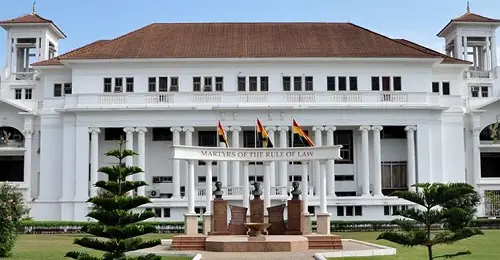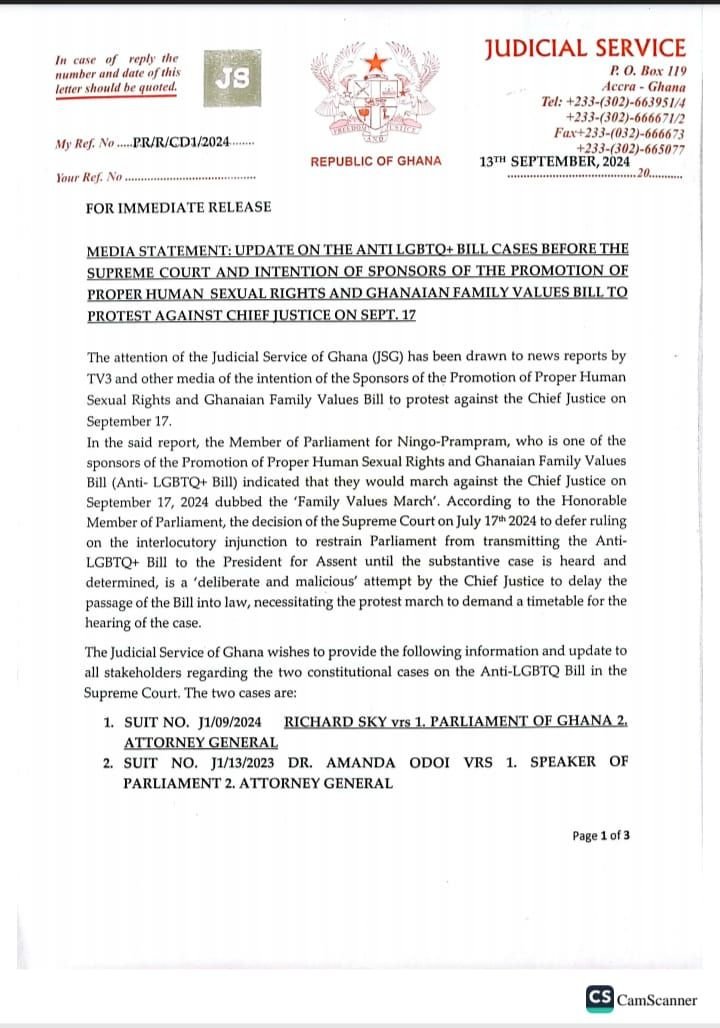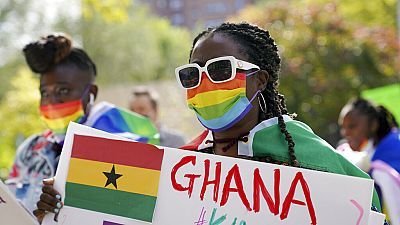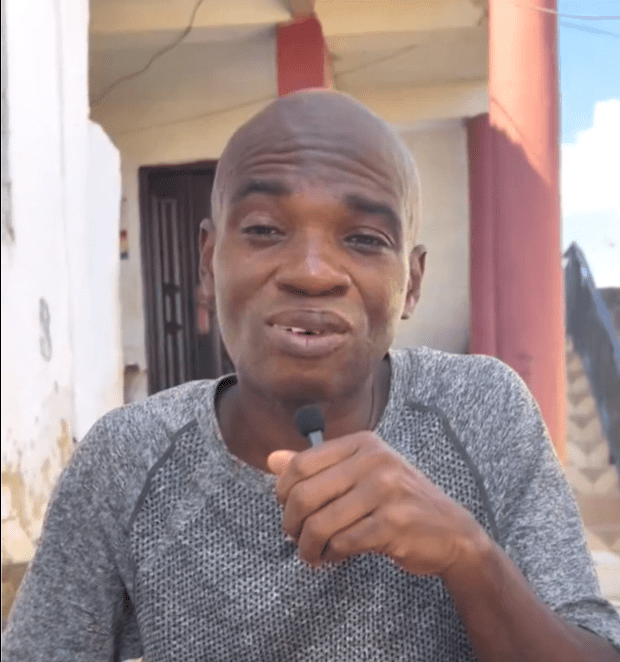Judicial Service: “Court Not Ready To Hear Anti-LGBTQ+ Cases” Supreme Court Clarifies

The Judicial Service of Ghana has responded to growing public concern surrounding the delay in hearing cases related to the Promotion of Proper Human Sexual Rights and Ghanaian Family Values Bill, also known as the Anti-LGBTQ+ Bill. In a clarifying statement released on September 13, 2024, the Service announced that the cases brought before the Supreme Court are not yet ready for hearing due to procedural delays.
The bill, which seeks to legislate against LGBTQ+ rights in Ghana, has been challenged by individuals and groups who question its constitutionality. These cases have generated significant public interest, with some accusing the Judiciary of deliberately stalling the proceedings. The Judicial Service has refuted such claims, stating that the required legal processes are still incomplete.

Legal Procedure Delays
According to the statement from the Communications Department of the Judicial Service, the parties involved in the cases have yet to file all necessary legal documents, including their respective statements of case. Additionally, they need to agree on a joint memorandum of issues, a legal requirement before the hearing can proceed. The Service emphasized that until these steps are completed, the cases cannot be scheduled for hearing.
“From the above, it is clear that the parties have not completed their work, and therefore, the cases are not ready for hearing,” the statement read.
This clarification follows recent reports of frustration among the promoters of the Anti-LGBTQ+ Bill, particularly concerning what they perceive as unnecessary delays. Notably, the bill’s supporters, including Member of Parliament for Ningo-Prampram, Samuel Nartey George, have expressed disappointment in the handling of the cases and have called for demonstrations against the Chief Justice, Gertrude Sackey Torkornoo, and the Judiciary.

Background of the Cases
The legal challenges were initiated earlier this year by plaintiffs Richard Dela Sky and Dr. Amanda Odoi, who filed separate interlocutory injunctions against the passage of the bill. On July 17, 2024, the Supreme Court, chaired by Chief Justice Torkornoo, deferred rulings on these injunctions until the substantive matters are resolved. As of July 31, 2024, neither the Parliament nor the Attorney General had filed a defense in Richard Dela Sky’s case. Similarly, in Dr. Odoi’s case, the Attorney General has yet to submit a statement of case, though Parliament filed its response in March.
The delays in the filing process have led to accusations of judicial inaction. However, the Judicial Service has been firm in assuring the public that the Supreme Court, along with the Court of Appeal and the High Court, remains operational even during legal vacations and is prepared to receive all necessary filings.
Judicial Response to Demonstrations
The promoters of the Anti-LGBTQ+ Bill have expressed their intention to organize demonstrations against the Chief Justice and the Judiciary, demanding a faster resolution to the cases. However, the Judicial Service has assured the public of its readiness to adjudicate the cases once they are legally prepared for hearing. They reiterated that the delay is due to incomplete legal procedures rather than any intentional obstruction on the part of the Judiciary.
In an effort to address public concerns, the Judicial Service emphasized that their role is to ensure that all legal requirements are met before any case is heard, and they called for patience as the legal process unfolds.
Conclusion
As the cases surrounding the Anti-LGBTQ+ Bill continue to stir controversy and public debate, the Judicial Service’s clarification highlights the procedural complexities that often accompany high-profile legal challenges. While the frustrations of the bill’s supporters are understandable, the Judiciary has maintained that due process must be followed before the cases can proceed. The coming weeks will likely see increased pressure on all parties to complete the necessary filings, allowing the Supreme Court to begin hearings on one of the most contentious pieces of legislation in recent Ghanaian history.















